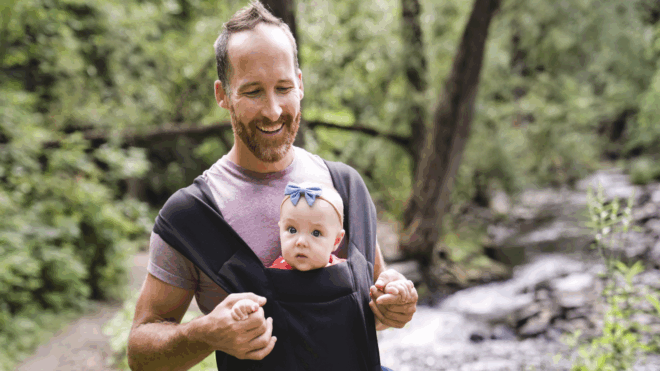
'What Should I Know?'

You step off the plane, and your senses go into shock as you set foot on land you've never touched before. You adjust your ears to a dialect different from yours and inhale brand-new aromas. This is what traveling abroad is all about. But where to start, in such a foreign setting? Before the trip, look up where to find the local tourism office (or just find a local), and pull out this list of essential questions to ask when you first arrive in a new country.
'How Should I Greet People?'

Having a phrase book on hand when entering a new country is a good idea in any case (in e-book format or downloaded to your phone to keep luggage light), but there's more to a greeting than simply words. Once you nail the phrase, there's still the appropriate body language. While air kisses on the sides of the face can be appropriate in places like France and Colombia, in a country like Korea or Japan, a slight bow at the waist is what you'll see commonly exchanged.
'Am I Saying This Right?'

Americans tend to forget that when we speak to people while traveling outside of the United States, we have a distinct accent that stands out. Because of the natural way we've trained our mouths, we usually pronounce words in a foreign language with our American accents. (You've probably been pronouncing Beijing wrong this whole time, for example.) If you want to see the expression of a local change from annoyed to impressed in a split second, try enunciating using the native accent.
'Where Can I Find Wi-Fi?'

It's healthy to unplug from the virtual grid. Vacation should be the time to live in the moment, forgetting about the rest of the world. The thing is, Wi-Fi is your best friend for ample reasons when you're outside of the country. Many carriers allow calls over Wi-Fi without charging roaming fees. You can look up a historical fact that helps you appreciate a landmark or communicate with a new friend using Google Translate. Most important, Wi-Fi will help you find your way back to your accommodations if you get lost.
'How Does the Public Transit System Work?'

With New York City being one of the few exceptions, American towns don't have the extensive public transportation options that some other countries offer. Without access to a big transit system, it can get overwhelming for a first-time visitor to blindly figure out how to affordably get around a new place. Where do you buy tickets? How much is the fare? Should you take the bus or train? Mix gestures and the few words you've learned from your phrase book to ask for help. Once you master the first ride, it'll be easy street from then on.
'How Do I Hail a Cab'

Depending on the place you're in, it might be acceptable to hail a taxi the good ol' American way and stick your hand high in the air. But slow your roll, because that's not necessarily what they do elsewhere. You should know which safe cab companies to look for, if you need exact change and if you should arrange by phone to have one pick you up. Rideshare apps like Uber and Grab are also available in many countries, sometimes for a cheaper and more comfortable trip.
'How Much Should I Tip?'

Tipping culture used to be something that seemed almost exclusive to the States, but as global tourism has picked up significantly, the average tipping percentage reflects the worldwide growth of the hospitality industry. It is still not necessary, and sometimes frowned upon, to tip in excess of 15 percent to 20 percent when outside of the U.S. In places like Nepal and Japan, tipping is even still discouraged. If ever in doubt, it's never rude to ask what's appropriate.
'Where Can I Find the Best Drinks?'

A long international flight on an airtight plane is sure to leave your mouth dry. If it's not quite time to check into your room yet, the first thing you should consider en route from the airport is grabbing a drink. Whether it's coffee or tea, or you're ready for a beer or cocktail, only a local can tell you where to find the best of the best. This is also a great indicator of the local cultural characteristics.
'Where Can I Find the Best Food?'

Just because a café is known for its premium coffee doesn't mean it has the bites to back it up. It's common to find more specialty shops and restaurants outside of the United States (superstores and too many options are our thing), so make it a habit to eat and drink in smaller portions, bouncing between the best eateries in town as you go. The interaction with other diners, varieties of flavors and cavalcade of scents that fill your time abroad will be the result of this question.
'Is There a Story Behind This Meal?'

The late Anthony Bourdain didn't turn down meals offered to him by hosts while traveling. Even when he knew very little about what was being served, he understood that food told a story about the local culture. The ingredients and preparation style chosen by cooks are well-considered translations of love through food. Generations pass down methods, secrets and stories that cooks work hard to perfect in a proud display of their heritage. You'll be shocked by what you learn from a simple inquiry about a food's history.
'Which Hand Should I Use?'

Dining etiquette is the thing most travelers screw up, but are rarely corrected on. For instance, in many places like India and some African countries, diners are expected to eat with their right hands. Even when utensils are used in Asian countries, there is consensus that the right hand takes the lead during a meal. (The left hand is reserved for wiping during potty breaks.) Double-checking what the standard hand for eating is might save lefties from unpleasant stares when dining out in a new country.
'Is This Rude?'

All gestures were not created equal. If you were raised in America, you might have picked up some traits like putting your hands in your pockets or posing for a picture holding up two fingers as the peace sign. While these mean next to nothing to another U.S. resident, they could be incredibly offensive elsewhere. In Asia, hands in pockets can signal arrogance, and that peace symbol, if done with the back of your hand showing, can be synonymous with a single middle finger in Ireland or the United Kingdom.
'What Are the Major Regional Religions?'

One of the largest contributions to the culture of any country is its religious background. From the politics down to the food preparation, understanding the religious blueprint of a place will shed light on everyday life there. As a responsible traveler, you wouldn't want to disrespect the majority of people your first time visiting just because you didn't know the basic expectations. For instance, people in Thailand, a mostly Buddhist country, consider the head and feet sacred, therefore you should never touch a Thai person's head or show the bottoms of your feet.
'Shoes On or Off?'

In several Asian countries, it's customary (more honestly, heavily insisted) that you take off your shoes before entering a home. In general, the western half of the world doesn't mind if shoes stay on indoors. (That is, besides those of us who own light-colored carpets.) Turns out that no matter how expensive your shoes are, they need to stay outside of the door in countries like South Korea and Vietnam. A good rule of thumb is to avoid assuming and ask your host before stepping inside.
'What Is a Good House Gift?'

Even in America, it's good manners to bring a gift to someone's home when they host you. To leave a lasting impression on the citizens of the country you're visiting, even if it's the host of your Airbnb rental, a small gift is always a great idea. Shopping locally will contribute to the economy of the town you're visiting and cut down on luggage volume. Check and see what a thoughtful trinket might be to bring to the homes of people who lovingly invite you to share their community.
'May I Take a Photo?'

Don't just start clicking away on your phone or camera before you know if it's OK with locals. Many religions around the world restrict the use of photography when it's of people or places considered holy and sacred. Some people prefer not to be photographed at all because of religious and personal reasons that are common to the region. Interact with people and talk to them before you take pictures. Make sure you're not violating anyone's space or personal beliefs by doing some investigating before and after you arrive in a country for the first time.




